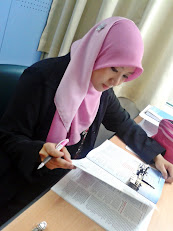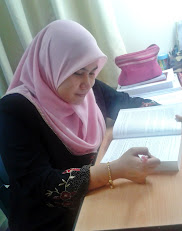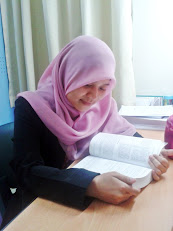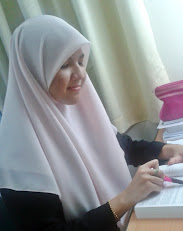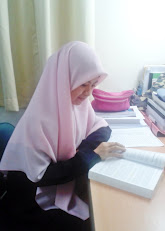I list several mistakes that are commonly practiced by Muslim women today regarding aurat:
ERROR 1: Aurat is ONLY about covering the hair.
ERROR 2: Wears hijab with short sleeve T-Shirt.
ERROR 3: Wears hijab with slitted skirts.
ERROR 4: Wears hijab with tight and transparent blouse that reveals body parts that lures a man.
ERROR 5: Wears very loose hijab that causes the hair to be visible.
ERROR 6: Wears hijab only in the office. Not at home or around the mall.
ERROR 7: Wears hijab but the end of the hijab is pulled up revealing the chest.
ERROR 8: Wear a hijab that is made of transparent material that causes the hair, neck and chest to be visible.
Some women believe that covering the aurat is only about covering the hair. This is totally inaccurate as Allah mentioned in Al-Qur'an:
وَلْيَضْرِبْنَ بِخُمُرِهِنَّ عَلَى جُيُوبِهِنَّ وَلَا يُبْدِينَ زِينَتَهُنَّ إِلَّا لِبُعُولَتِهِنَّ أَوْ آبَائِهِنَّ أَوْ آبَاء بُعُولَتِهِنَّ أَوْ أَبْنَائِهِنَّ أَوْ أَبْنَاء بُعُولَتِهِنَّ أَوْ إِخْوَانِهِنَّ أَوْ بَنِي إِخْوَانِهِنَّ أَوْ بَنِي أَخَوَاتِهِنَّ أَوْ نِسَائِهِنَّ أَوْ مَا مَلَكَتْ أَيْمَانُهُنَّ أَوِ التَّابِعِينَ غَيْرِ أُوْلِي الْإِرْبَةِ مِنَ الرِّجَالِ أَوِ الطِّفْلِ الَّذِينَ لَمْ يَظْهَرُوا عَلَى عَوْرَاتِ النِّسَاء
And tell the believing women to lower their gaze and to be mindful of their chastity, and not to display their charms [in public] beyond what may [decently] be apparent thereof; hence, let them draw their head-coverings over their bosoms. And let them not display [more of] their charms to any but their husbands, or their fathers, or their husbands' fathers, or their sons, or their husbands' Sons, or their brothers, or their brothers' sons, or their sisters' sons, or their womenfolk, or those whom they rightfully possess, or such male attendants as are beyond all sexual desire, or children that are as yet unaware of women's nakedness (An-Nur: 31)
The meaning of khumur (veil) is anything that is used to cover the head. Meanwhile ‘juyub' (the plural form of jaibun) is the curvature of the breast that is not covered with cloth. Therefore every woman must cover not only their head but also their chest including their neck and all other parts that may lure a male.
According to Syeikh Dr Yusof Al-Qaradawi, the adornment mentioned in the above ayat refers to anything that is worn to beautify oneself; either natural beauty like face, hair and body; or man made beuatification like dress, embellishment, make-up and others.
In the above ayat, Allah commanded women to conceal the adornment without any exemption. The only exemption was "what is apparent". The scholars therefore have differences in opinion about the meaning and extent of "what is apparent".
For example, Ibnu Abbas r.a, one of the great companions of the Prophet (s.a.w.) interpreted "what is apparent" as eyeliner and ring. Anas Bin Malik is also of the same opinion. Therefore, the body parts where the eyeliner and the ring are worn (i.e. the face and the palms) would also be considered as apparent. This also the opinon of the Tabien like Said bin Jubair, 'Atha', Auza'i and others.
However, Ummul Mukminin Aisyah r.a, Qatadah and a few others considered bracelet as something apparent. Therefore, the wrist (place of wearing a bracelet) is also considered as apparent if it does not cause any harm (fitnah). Regarding the limit from the wrist to the elbow, it is still under discussion among the scholars; therefore it is better to cover parts between the wrist and the elbow.
According to Syeikh Al-Qaradawi, make up (eye shadow, blusher, lipstick, nail polish etc) worn by women today does not fall under the category of "what is apparent". These make up although is worn on the face but it is excessive and could not be worn except inside the house. The purpose of women applying make up today is to beautify oneself and attract people's attention. Therefore, it is clearly haram to wear such make up outside the house.
In my opinion, it is best for a Muslim woman to conceal her adornment to her best ability including her face if possible, especially if she has a beautiful appearance. This would help minimize the widespread of social problems occurring in our society today.
وَلَا يُبْدِينَ زِينَتَهُنَّ إِلَّا لِبُعُولَتِهِنَّ أَوْ آبَائِهِنَّ
"...And not to reveal their adornment except to their husbands, or their fathers" (An-Nur: 31)
All the above mentioned is unanimously forbidden by the scholars. The ruling is directed towards Muslim women where they are not allowed to reveal any adornments on their body like embellishment of the ear (earing), embilleshment of the hair, embellishment of the neck (necklace), embellishment of breast (curvature) and embellishment of the leg (calf and "bangle"). They could reveal all these to the males (non-mahram). Only the face and the palms could be revealed.
Evidence (dalil) from al-Quran and al-Hadith clearly forbid women to wear attire that is made of transparent material that reveals their skin or tight attire that shows their body shape. Most importantly the attire should not reveal luring body parts such as the breast, the thigh and others.
In a hadith narrated by Abu Hurairah, Rasulullah s.a.w. said:
"Two are the types of the denizens of Hell whom I did not see: (1) people having flogs like the tails of the ox with them and they would be beating people (unjust rulers); (2) the women who would be dressed but appear to be naked, who would be inclined (to evil) and make others incline towards it. Their heads would be like the humps of the bukht camel inclined to one side. They will not enter Paradise and they would not smell its odour whereas its odour would be smelt from such and such distance" (Narrated by Muslim).
The women are said to wear attire but is still naked because they do have cloth on their body but it does not cover the aurat because it is transparent and exposes their skin; like the wearing of many women today. (Al-Halal Wal Haram Fil Islam, Dr Yusof Al-Qaradawi)
‘Bukhtun' is a type of camel that has a big hump. Women's hair looks like the hump of a camel when it is pulled and tangled over their head. Although the hadith was revealed thousand years ago, the Prophet s.a.w. was able to warn us of what would happen now. Today there are various saloons that set hair for women with millions of fashion and sadly men are the hair setter at most of these saloons.
Prohibition to wear transparent clothing
Saidatina Aisyah r.a narrated that her sister Asma' binti Abu Bakar entered the house of the Prophet s.a.w wearing attire made of transparent material that showed her skin. The Prophet s.a.w turned away from her and said:
"Hai Asma'! Verily when a woman has achieved puberty, she should not reveal her body except for this and this - showing the face and the palms." (Narrated by Abu Daud)
Although there is a weak narrator in this hadith, it is strengthen by many other hadith that allows revealing of the face and the palms if it does not bring any harm (fitnah). Dr Yusof Al-Qaradawi explained that looking repeatedly at a man or woman (besides their aurat) without any desire is halal.
ERROR 9: Wears hijab but rides the motorbike revealing their calf.
It was narrated in hadith that:-
"Allah blesses women that wears trousers (inside their garment)" (Narrated by Al-‘Uqayli, Dar Qutni from Abu Hurairah, Musannaf Abd Razak, no 5043; Kanzul Ummal, no 41245).
According to Imam Mujahid, this hadith was narrated when a woman fell from her ride in front of the Prophet s.a.w and his companions. Her garment hoisted and the Prophet s.a.w turned away his face. The companions then told the Prophet s.a.w that the woman wore trouser inside her garment. As a response, the Prophet s.a.w complimented the woman and metioned the above hadith. (Al-Bayan wa At-Ta'rif, Ibn Hamzah al-Husyani, 3/ 252, no 1831)
Using the same hadith and according to the Mafhum Mukhalafah method in the study of Usul Fiqh, Allah then condemns women that do not wear trousers (inside their garment) when riding their transport.
ERROR 10: Cover the aurat perfectly but enchants her voice when interacting with man. This includes singing and nasheed. It is not suitable for a woman to do da'wah via nasheed because the moment a woman gets on stage with her glamorous attire to perform nasheed, thousand of men's eyes get focused on her. We do not know where exactly the men are looking. Her enchanting voice also melts the heart of the listner and may arouse desires of some men although the woman only sings words praising God.
Al-Qur'an prohibits woman from enchanting their voice when interacting with man. Allah SWT said: "...Then be not soft in speech, lest he in whose heart is a disease (of hypocrisy or evil desire for adultery) should be moved with desire; but speak in an honourable manner." (Al-Ahzab: 32)
thus, women should observed to not make the mistakes that as above, to make our awrah is observed accordingly. Waallahua'lam.








